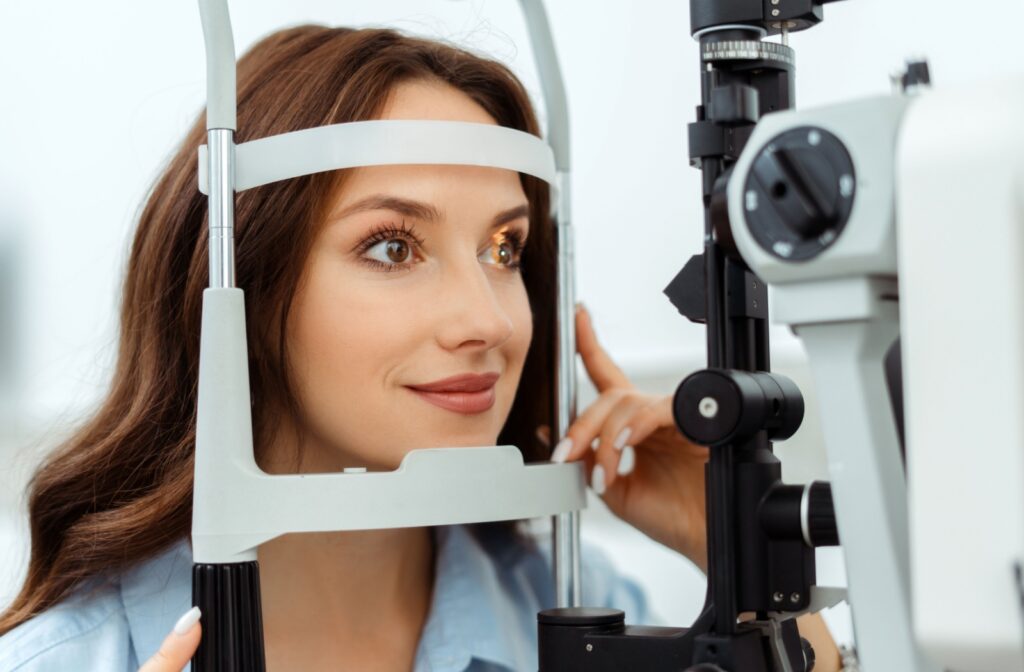Eye exams are more than just a check for vision clarity; they can serve as a window into your overall health. During a comprehensive exam, eye doctors can detect early signs of conditions such as diabetes, hypertension, and glaucoma, often before symptoms appear. Regular eye exams not only help protect your sight but also support broader health management, making them a key part of preventive care. Here are ways comprehensive eye checkups benefit your overall health:
Detecting Vision Problems Early
Eye checkups catch vision changes before they become noticeable in daily life. Many eye conditions develop gradually, making them difficult to detect without professional examination. Glaucoma, for instance, can cause permanent damage to vision before symptoms appear. Regular testing identifies these changes when treatment options are most effective.
Visual acuity tests measure how clearly you see at various distances using the familiar eye chart. Eye pressure measurements help detect risk factors for glaucoma. Comprehensive evaluations examine the health of your optic nerve and cornea. These eye exams work together to create a complete picture of your eye health.
Spotting Signs of Serious Health Conditions
Eye exams can reveal signs of systemic health conditions that affect the entire body. The blood vessels in your eyes provide a direct window into your circulatory system, offering clues about conditions such as diabetes, high blood pressure, and heart disease. These conditions often show early signs in the eyes before symptoms appear elsewhere in the body.
Diabetic retinopathy affects blood vessels in the retina and can develop without noticeable symptoms. High blood pressure can cause changes to retinal blood vessels that are visible during examination. Some autoimmune conditions also create detectable changes in eye tissue and function.
Supporting Daily Performance
Vision has a direct impact on learning, work performance, and overall quality of life. Children with undetected vision problems may struggle academically because they cannot see clearly. Adults with vision changes may experience headaches, eye strain, or reduced productivity without realizing the cause.
Eye exams make sure vision supports optimal daily function. For children, clear sight is fundamental for reading, writing, and classroom participation. Adults require good vision for performing work tasks, driving safely, and engaging in recreational activities. Corrective lenses or other treatments identified during routine exams can dramatically improve daily experiences.
Preventive Care for Lifelong Health
Establishing regular eye exam schedules creates a baseline for monitoring changes over time. Most adults benefit from annual or bi-annual examinations, though those with risk factors like diabetes or a family history of eye disease may need frequent monitoring. Preventive eye care helps maintain vision and general health.
Early intervention can slow or prevent age-related conditions like macular degeneration. Regular monitoring allows for adjustments to treatments as needs change over time. Maintaining good vision helps prevent falls, supports continued driving ability, and allows for continued participation in valued activities.
Schedule Your Regular Eye Exams Today
Comprehensive eye exams provide valuable health information that extends far beyond vision correction. They detect problems early when treatment is most effective, reveal signs of serious health conditions, and support optimal daily performance. Make eye exams a regular part of your preventive health care routine. Contact an eye care professional to schedule your next comprehensive examination to maintain clear vision and overall health.

